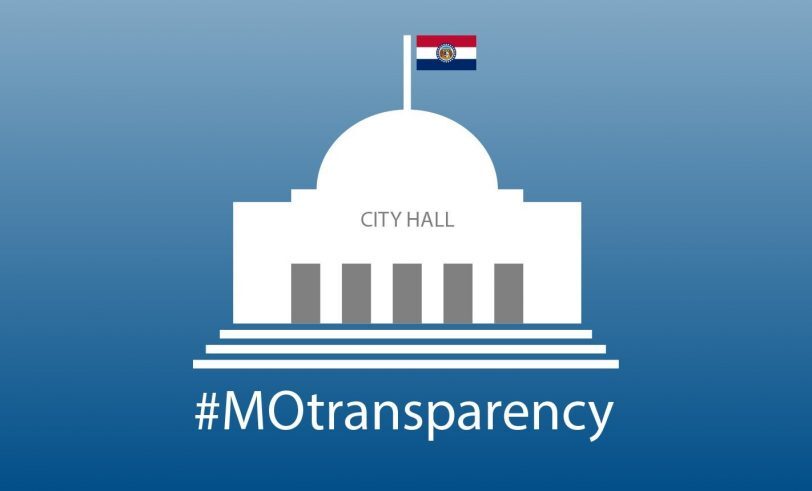Small but Mighty Huntsdale, Population 25

When I first started working on the municipal checkbook project this year, I thought that many of Missouri’s smallest cities might have trouble getting information back to us. After all, cities with populations under 100 often have few if any full-time government officials. These cities also generally have few expenses, as their fire protection and police services are usually provided by other departments.
But as it turned out, some of the smallest cities I worked with were the most responsive and welcoming of our checkbook inquiries. The Village of Huntsdale, Missouri, is an example. Located 20 minutes west of Columbia, Huntsdale has a population of only 25 people. All of its government officials are unpaid and work part time in addition to their full-time jobs. Considering these factors, one might expect that the city would just ignore our request, as many small towns have. However, that wasn’t the case.
Ana Lopez, a Huntsdale city official, replied to us within a week of our request. She acknowledged that the village has very few expenses due to its size, and only has a single monthly bill (totaling a little less than $800) for landscaping work. She provided us with a digital copy of this bill, showing the exact cost, who the amount was paid to, and the date. Of the over 600 requests that the Show-Me Institute sent, Huntsdale is the smallest city to respond thus far. As it turns out, being a smaller city may mean fewer resources for officials to marshal, but it also means fewer stones to turn over when asked about its operations.
This isn’t to say that Huntsdale’s response would be the exact format for what we would want a submission to the state to look like someday, when a statewide mandatory checkbook reform comes to pass. We have talked before about the importance of reporting spending in a standardized format, and that format when submitted to the state would probably look (to enter the weeds briefly) like an Accounts Payable report or some equivalent. In that scenario, the state would need more than a lonely bill from Huntsdale for it to be in compliance. Of course, that isn’t the circumstance today.
Moreover and as with every city, receipt of a city’s documents is not itself a confirmation of their contents. Our presumption in our Sunshine Law requests is that the responses we receive will be in good faith. Lacking an independent basis to affirm the truth of a document we receive; however, we can only observe how well respondents adhere to the transparency process and the nature of the documents we got. The state, empowered by a mandatory checkbook reporting system, will be far better positioned to confirm the truth of local spending documents, and we will leave those determinations to when that time comes—as we always have. With that in mind, Huntsdale’s response was nonetheless sufficient for our purposes now.
It has now been over three weeks since we sent requests for spending information out, including many to middle-sized and large municipalities. But if Huntsdale, a town of 25 with zero paid officials, can respond promptly, so can larger cities with one or more full-time staff. Government transparency requires officials to use their power in a responsible manner, with an eye toward stewardship, and that’s something that can happen in small towns and sprawling cities alike.
Municipal transparency doesn’t really depend on city size at all.It depends on city culture. Fortunately, it seems Huntsdale’s culture of transparency is a good one.


